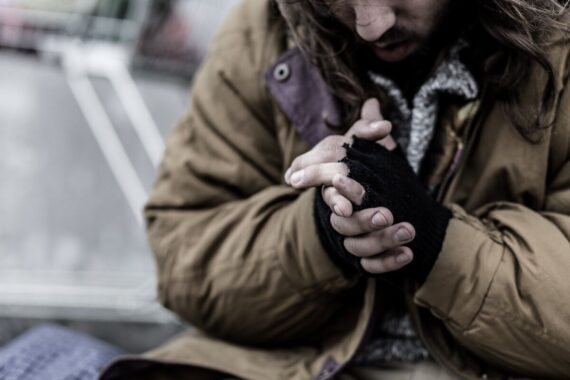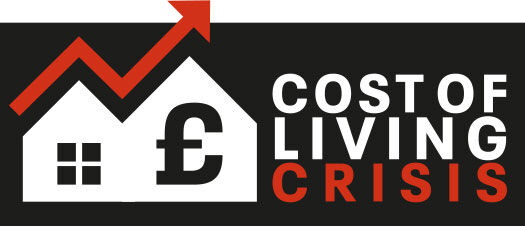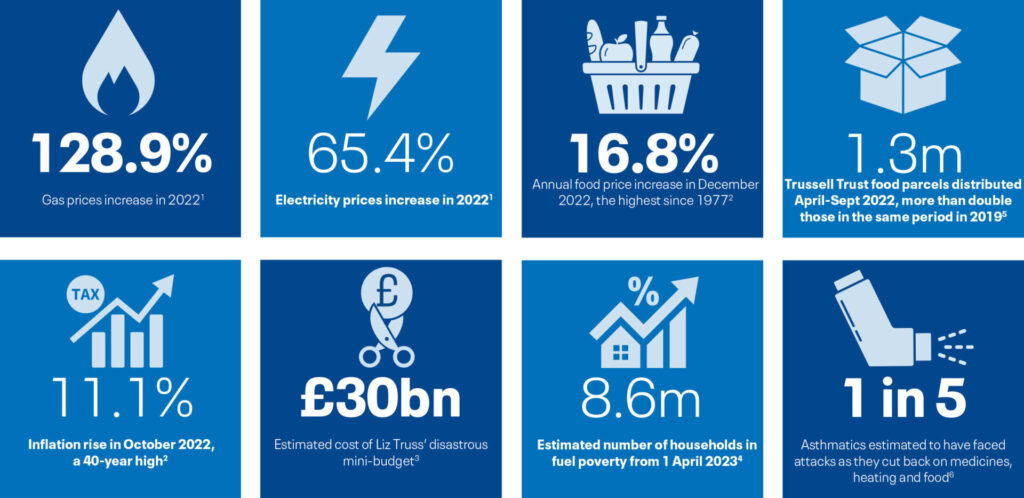More than one in five GP consultations caused or exacerbated by cost-of-living crisis


Exclusive Around 22% of GP consultations are currently mental or physical health problems caused or exacerbated by the cost-of-living crisis, a snapshot survey of Pulse readers has found.
The survey of 1,000 GPs also revealed that 16% of partners are implementing initiatives in their practices to try and help patients, including providing warm spaces within the surgery.
GPs told Pulse that the impact of the cost-of-living crisis on mental health has been particularly noticeable due to strains on patients’ finances, while there has also been an impact on physical health due to patients having to eat cheaper and unhealthier food, with some having to reduce the use of heating.
A coroner’s hearing in Rochdale this week found that the death of Barbara Bolton, 87, was ‘particularly accelerated by hypothermia and there is a possibility of self-neglect due to the lack of heating’.
One respondent to Pulse’s survey said: ‘A lot of our patients live in fairly suboptimal housing; many have had mould or damp issues for a long time, and this crisis seems to be making things worse.
‘People mention that they are just not turning the heating on now because they are terrified of the bills they will get if they do. If we’re talking about someone who is immunosuppressed or has a respiratory condition, that’s really not going to help them at all.’
‘When money is tight you buy what’s cheap and that predominantly means carbs, so for a lot of our diabetic patients, type 2 particularly, their HbA1c levels are going up and up and up, which obviously is going to have an impact on their risks for things like heart attacks and strokes.’
Dr Clare Bannon, deputy chair of GPC England at the BMA, said: ‘Not being able to properly heat a home or buy enough food can have significant and detrimental impacts on people’s health. It’s also something most likely to impact the poorest in our communities, therefore widening health inequalities and putting more strain on the NHS as a result.’
Professor Kamila Hawthorne, chair of the RCGP, said GPs and their teams ‘are witnessing the impact of rising cost-of-living on our patients’ physical and mental health’.
‘Whether someone is concerned about their finances, are struggling to feed themselves and their family, or are living in a poorly heated home, these all have serious health implications and as these survey results show, are impacting on a significant number of patients. This can affect whole neighbourhoods, not just individual households,’ she said.
‘It’s vital that the Government ensures that patients, particularly our most vulnerable patients – the elderly, those with chronic illnesses, and those below the poverty line – whose health is most likely to be adversely affected, are protected against rising food prices and energy bills.’

Professor Hawthorne suggested ‘some sensible measures for consideration’ could include expanding free school meals, increased signposting to cheap but also healthy foods in supermarkets and ‘as a short-term measure’, creating ‘warm spaces’ for people during cold weather.
And she added: ‘GPs want to support their patients and do the very best for them, but we are currently facing intense workload and workforce pressures, with record numbers of patients currently needing our services.
‘The Government must act urgently to expand the GP workforce, by developing recruitment and retention strategies that go beyond the promised 6,000 GPs, and take measures to cut unnecessary bureaucracy, to ensure GP teams are equipped to deliver safe and timely care to the rising numbers of patients who need it.’
Dr John Hughes, chair of the GP Survival group, said: ‘These figures confirm what we have been hearing from members, that the cost of living crisis is increasing stress on both GPs and patients.
‘Practices are unable to mitigate the increased workload, as increased expenses particularly energy costs, leave them less able to recruit or retain staff.
‘This is likely to further worsen the rates of burnout and GPs quitting the profession.’
GPs are finding themselves doing more signposting to other agencies and referring to foodbanks – and some have considered broadening their offer of support beyond the strictly medical. Pulse’s survey found 17% of 469 GPs were implementing initiatives to help patients affected.
Examples given included actively contacting vulnerable patients to offer support, making more use of social prescribers, and working with other local agencies to provide a warm space and hot meal. GPs also commented that they were allowing patients to access their waiting rooms for longer to keep warm.
In September, Pulse reported on how the Project Surgery in Newham, London was repurposing its meeting room as a ‘safe space’ for local people to drop in get warm and have some soup over the winter months. GP partner Dr Farzana Hussain commented at the time that she wanted it to be a ‘non-judgemental, safe space’, adding that she was really scared one of her elderly patients would die of hypothermia: ‘That’s the heartbreaking thing because I think these things are preventable.’
Meanwhile, in Gloucestershire a ‘Warm Home Prescription scheme’ for struggling patients with cold-sensitive health conditions was launched in November 2022, allowing GPs and other healthcare professionals to prescribe a heating plan to support patients at risk, which includes paying their bills.
Results in full
The survey was open between 23 November and 5 December 2022, collating responses using the SurveyMonkey tool, with GPs across the UK asked to respond to these particular questions. It featured a range of questions on various topics. The survey was advertised to our readers via our website and email newsletter, with a prize draw for an £250 John Lewis voucher as an incentive to complete the survey. The survey is unweighted, and we do not claim this to be scientific – only a snapshot of the GP population
Pulse October survey
Take our July 2025 survey to potentially win £1.000 worth of tokens

Visit Pulse Reference for details on 140 symptoms, including easily searchable symptoms and categories, offering you a free platform to check symptoms and receive potential diagnoses during consultations.
Related Articles
READERS' COMMENTS [3]
Please note, only GPs are permitted to add comments to articles










interesting how humans behave in free at point of abuse healthcare systems: 1 in 5 (of GP consults) linked to lack of resources, and at the same time very signifficant number of contacts (feels like 1 in 3 at least) are clearly linked with overconsumption: type 2 DM, obesity leading to multiple symptoms, smoking related problems, self indulgent seeking diagnostic labels to explain behavioural traits, alcohol related problems… list can go on.
Idea: could we, maybe, link each malnaurished person with an obese one, so they even each other out dietetically.
it’s called active community- and it’s mostly dead in most places, mostly.
Much higher rates of Tax for the most expensive Luxury items and the most expensive properties of London and the their Billionaire owners, are required. Most honest people in the UK cannot afford these things in a ‘cost of living’ crisis; they also do not have tax avoidance, evasion (unlike some recent people in this government). Amazingly, the Blues plan to tax the big corporations less: this is unbelievable. Unfortunately workers, including doctors, teachers, paramedics and nurses will not be taxed less by the look of things and wages (and the NHS) will continue to erode. Sir Keir’s thinking ‘it’s all right for some off-shore tax-swindlers, isn’t it Mr Sanuk’s government et al, (so-called, laughably, Mr Integrity), and there are still some questions to answer in the Chamber perhaps’. A higher windfall tax on energy would be good too, and help reduce people’s energy bills and help the NHS and NHS wages for doctors and nurse that are very much deserved. Also, a lot more Medical School places are needed moving forward, for aspiring doctors. The numbers are not increasing nearly enough. Most will stay in UK
(with any luck)
All of these consults will be redirected to social services or local MP.
GPs are not there to hold your hands.